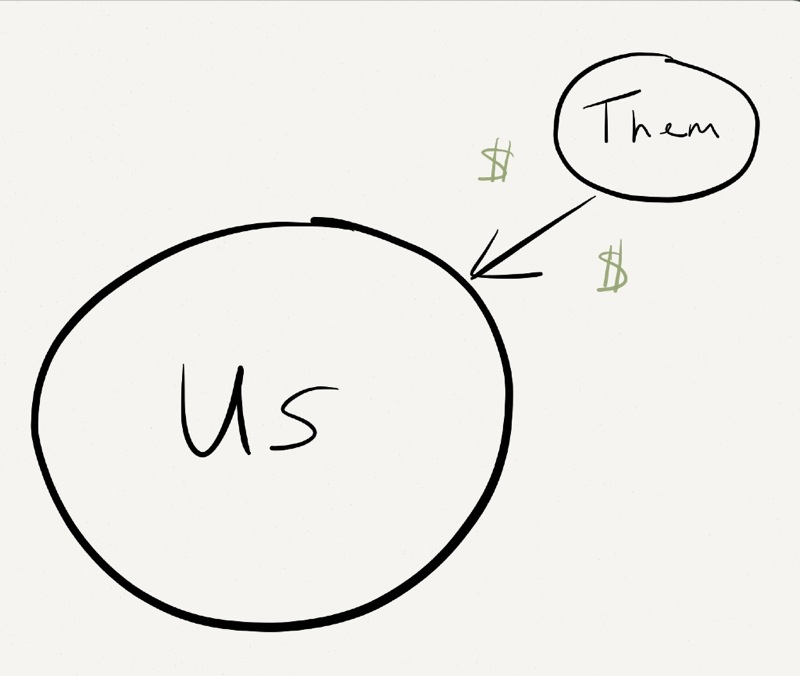
A User by Any Other Name
October 21, 2012
When we were starting Indigo in 1997 I sought $100K of angel financing from an old friend and mentor. Michael Schweitzer, who passed away in 2003, had taken me under his wing at the age of 15 and we remained close throughout my university career. I am still in awe at the learning and opportunities which I owe to this friendship, and I will always be grateful. Michael and his company became one of Indigo’s earliest clients, so his participation, both financial and advisory, seemed like a perfect fit.
As we proceeded through the informal negotiations Michael met my co-founders and started to learn more about our collective goals and beliefs. At the last minute, just before there was an actual contract to sign, Michael pulled out of the deal.
Feeling crestfallen and a little betrayed, I wanted to know why.
“Gene,” he said, “in every conversation I’ve had with your group, all I’ve heard about was your new approach. How special this thing you were trying to build was going to be. How your team was so great. I didn’t hear anything at all about us. About the customers, and our needs.”

Figure 1: One Perspective
He continued. “I don’t doubt your team’s ability. You’ve put together a strong group. But I just don’t think you care enough about us. I hope you guys do great, but until I see that you’ve become more focused on your customers, I won’t invest.”
Predictably, I dismissed his opinion out of hand. And of course, he was absolutely right. Over the years I have started to learn to project our focus externally, rather than internally to our organization. And I chuckle a little bit when I have conversations with people, and startups, that haven’t quite gotten there yet.
Jack Dorsey of Square and Twitter posted a nice piece on not wanting to attach the labels “customer” and “user” when more specific labels, like “buyer” and “seller” are available. A number of prominent bloggers responded to this labelling issue, including Marco Arment who posted an interesting take on the relationship between the label and the business model that drove it. Jessie Char jokingly goes further, and is (not really) trying to eliminate the term “client” entirely from her organization’s vocabulary, preferring “friend with benefits.”
It makes me wonder what organizations like Facebook call us behind our backs (my guess: “meeple”).
But for me, Jack’s second point resonated more strongly. “… all of our work is in service of our customers. Period.” I think Michael would have felt that way too.
Update: Jessie was kidding. Duh.
